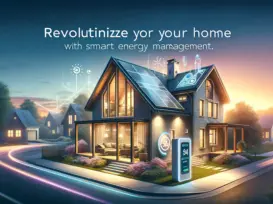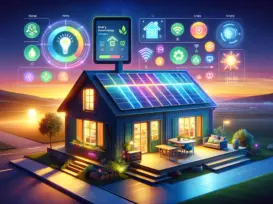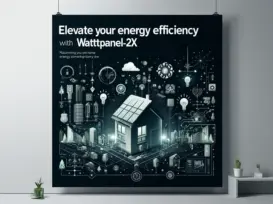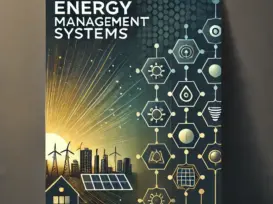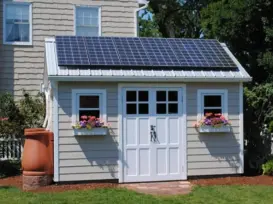Grus Home Energy - Home Energy Management Systems
Maximizing Efficiency with Smart Home Energy Management Systems: A Guide to Sustainable Living
Maximizing Efficiency with Smart Home Energy Management Systems: A Guide to Sustainable Living
With the growing concern over environmental sustainability and the rising costs of energy, homeowners are increasingly turning to Home Energy Management Systems (HEMS) to monitor and reduce their energy consumption. A Home Energy Management System is a technology platform that allows for the centralized control and optimization of energy usage within a household. By integrating various components, such as smart thermostats, energy-efficient appliances, and renewable energy sources, a HEMS provides a holistic approach to energy management, which not only benefits the environment but also leads to significant cost savings for homeowners.
At the heart of a HEMS is its ability to provide real-time feedback on energy consumption. This feature empowers homeowners to make informed decisions about their energy use. For example, by understanding which appliances consume the most energy, a homeowner can choose to run them during off-peak hours when electricity is cheaper or invest in more energy-efficient models. Furthermore, HEMS can automatically adjust the operation of heating and cooling systems, lighting, and other appliances based on predefined rules, occupancy, or even real-time energy pricing, thus optimizing energy use without compromising comfort.
The integration of renewable energy sources, such as solar panels and wind turbines, into a HEMS further enhances its energy-saving potential. By managing the flow of energy between these sources, the grid, and the home, the system ensures that renewable energy is used first before drawing from the grid, thereby reducing reliance on non-renewable energy. Additionally, some advanced HEMS can store excess energy in batteries for later use or even sell it back to the grid, providing an additional financial incentive for homeowners.
HEMS also play a pivotal role in the broader context of smart grids and the Internet of Things (IoT). As more devices within homes become connected, HEMS can integrate with these devices to provide more precise control over energy use. This level of integration enables the creation of an energy-efficient ecosystem where all components work in harmony, reacting to each other’s energy needs and adjusting accordingly.
User-friendliness and accessibility are key components of a successful HEMS. Modern systems often come with intuitive smartphone applications or web interfaces that allow users to monitor and control their energy consumption from anywhere, at any time. This convenience ensures that homeowners can respond quickly to unexpected changes in their energy needs, further enhancing the effectiveness of the system.
Moreover, the data collected by HEMS can be incredibly valuable for long-term energy planning. By analyzing trends and usage patterns, homeowners can identify opportunities for further energy savings, such as additional insulation or window upgrades to reduce heating and cooling demands.
Despite the clear benefits, the adoption of HEMS faces challenges. The upfront cost of installing a HEMS can be significant, although it is often offset by long-term energy savings and potential government incentives. Additionally, there is a need for standardization and interoperability among different devices and systems to ensure a seamless and efficient HEMS environment.
In conclusion, Home Energy Management Systems represent a significant step forward in the quest for sustainable living. By providing homeowners with the tools to monitor, control, and optimize their energy use, HEMS not only contribute to a greener planet but also offer substantial economic benefits. As technology advances and becomes more accessible, it is likely that HEMS will become a standard feature in homes, helping to pave the way for a more sustainable and energy-conscious society.
Blog, Smart Home Automation , February 14, 2024 , Energy Consumption Monitoring, Energy Efficiency Improvements, HEMS, Home Energy Automation, Home Energy Management Systems, IoT Home Energy, Reduce Energy Costs Home, Renewable Energy Integration, Smart Energy Solutions, Smart Home Technology, Sustainable Home Energy
Blog, Smart Home Automation , February 19, 2024 , Energy Consumption Monitoring, Energy-saving technology for homes, Enhancing Heat Pump Efficiency, Green home solutions, Heat pump efficiency, HEMS, Home Energy Management Systems, HVAC optimization, Intelligent climate control, Real-time energy data analysis, Smart Thermostats, Sustainable heating and cooling
©2025 All Rights Reserved. Grus IoT Co.,Ltd.
